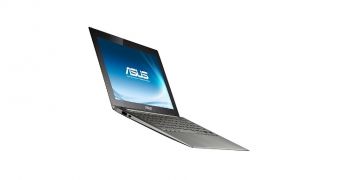It is unclear if touch support actually helps much in boosting ultrabook sales, but it is reported that Intel wants the first touch-based models to show up next year, 2012.
There are at least two things that can be said for certain about Ultrabooks.
One of them is that they were supposed to be the new wonder child of the notebook market, much like netbooks once were, and secure the laptop segment against tablets.
The other sure thing is that they have, so far, failed to actually impress anyone with their marketing success, or lack thereof.
Nevertheless, Intel and its partners are going forward, betting on the eventual price decrease.
Now, Cnet reports that Intel already knows at least one thing that will, or should, happen to Ultrabooks in 2012.
Simply put, they will gain touch and multi-touch capabilities similar to those of tablets, removing this advantage that slates hold over their heads.
Windows 8 will have proper touch implementation and Intel also wants to get touchscreens to sell for less.
Just how well this works out is uncertain and the Santa Clara company will have its work cut out for it, as touch components not only produce heat, but they also don't get along well with how thin Intel wants ultrabooks to be.
It will be tricky to do all this and also lower prices, but that is, in the end, the goal.
“To hit the volume price points, we need to span $699 and up, and that's the goal fornext year. [...] In order for us to have an excited consumer at $699 and $799 price points, you have to be able to accelerate the reduction in [touch] cost. That's the kind of investment we will make around the ultrabook fund,” said Paul Otellini at Intel Capital global summit, reports Cnet News web-site.
“Starting with Windows 8, you have a mainstream operating system incorporating touch[-screen technology]. Our view is that in the ultrabook lines, touch is a pretty critical enabler. When users see that new Windows interface, they are going to want to touch it. If the screen does nothing, you have disappointed [the] consumer,” said Paul Otellini at Intel Capital global summit, reports Cnet News web-site.

 14 DAY TRIAL //
14 DAY TRIAL //